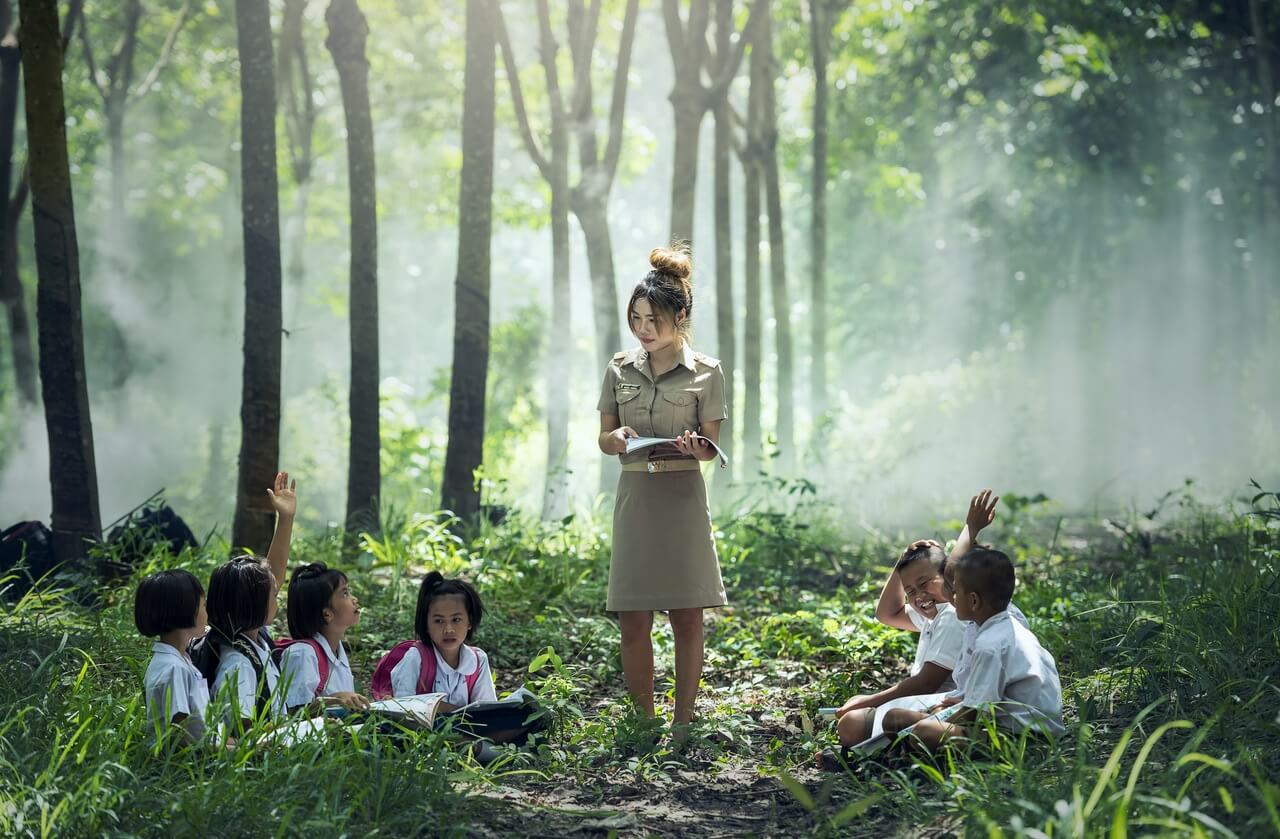Report Claims Outdoor Learning is ‘Key to Happy, Healthy & Creative’ Children

A growing number of researchers and educators have highlighted the far reaching and lasting benefits of hosting children’s lessons outdoors, away from the traditional classroom setting. Spending time outside has plenty of benefits beyond just recreation. Many experts say that learning outdoors could be a key to happy and healthy children, putting schools and communities at an advantage in the long run.
The term outdoor education covers a whole range of experiences, settings and end goals. Typically, we’d understand this to be something like an overnight camping trip in the countryside or an Outward Bound type trip that consist of children taking part in outdoor adventure activities with their classmates.
However, outdoor education can also include something as simple as leaving the classroom to teach a lesson outside in the school yard or garden. Often these are the most memorable learning experiences for children because the novelty of being somewhere new makes them more inclined to participate actively.
You might be surprised to learn that outdoor education doesn’t always have to be related to nature and involve learning about Biology and environmental sustainability. Even playing outside and using free time to organise games or explore and investigate untamed sections of the playground can allow for learning and development to take place in a completely new way. You can also cover traditional academic topics such as English, Maths and Science, but frame the pupil’s tasks by referencing the world around them.
If children were allowed to spend a few more hours in their week outside of classrooms and living rooms, there could be many noticeable benefits. As well as better health and wellness, they’d enjoy increased environmental stewardship and see a boost in creativity and concentration on the occasions where classroom based learning is necessary. Outdoor games and activities are great team-building experience, encouraging stronger collaboration and relationship skills, which builds self-confidence in children.
Environmental psychologist Louise Chawla found that frequent contact with nature was particularly beneficial for children with ADHD, helping to reduce restlessness and increase their memory. Spending time outdoors is also associated with lower rates of depression in both children and adults.
Other studies have shown that regular outdoor play can help with short sightedness among children as the high light intensity stimulates retina growth. Jessica Parsons of the Harvard Graduate School of Education (HGSE) has written about how exploring the new sights, sounds and sensations of natural environments broadens children’s perspective beyond their immediate families and schools, helping to make them more rounded human beings.
Another HGSE alum, Ben Wild, dedicated his career to leading teenagers on backpacking trips, helping them to become self-sufficient and mutually reliant as they survived in the wilderness for a week, completely free of modern technology. They began to take more risks and had ample time to set goals and reflect on their journey; skills which benefitted them when they returned to school.
HGSE lecturer Sarah Leibel worked in a summer camp in California that hosted ‘unplugged’ sessions where the campers would spend several weeks without mobile phones. They learned to make the most of free time outdoors and develop stronger conversational and interpersonal skills. Because they had the time to run around engaging in energetic activity, they found it easier to behave calmly during quiet times.
It’s not necessary to travel far for children and teens to benefit from the outdoors. Frequent close-to-home experiences are one of the most successful tools for connecting children to nature. They’ll learn to appreciate all aspects of the world around them, not just breath-taking views seen while camping, but also small things like ants on the playground or a squirrel in the yard. The benefits are out there!
